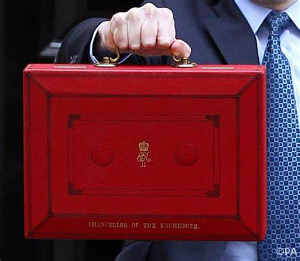Budget For Motorists?

In the latest Spring Budget announcement, Chancellor Jeremy Hunt presented two major policies that will have an impact on drivers across the UK. Unlike previous years, the motor trade industry was not the main focus of the budget. Nevertheless, there were still important plans owners of new and used vehicles shared with MPs in the House of Commons.
Last year, Hunt revealed a range of updates to fuel duty, electronic vehicle (EVs) taxation, company car taxation, VAT on EV charge points, and private and motor trade Insurance Premium Tax (IPT). However, in this year’s budget, the Chancellor has focused on two key areas: funding for potholes and freezing fuel duty.
There have been lots of calls for incentives to get more buyers into both new and used electric vehicles, but EVs and charging didn’t really get a mention in the chancellor’s speech, despite many calls for further support, it was anticipated that new commercial property builds would now have to install chargers for EVs.
To address the issue of potholes, the government has pledged £200m to local councils, representing a 20% increase to the funds set aside for this issue. The Chancellor highlighted that after a particularly wet and cold winter, he had received strong representations about the negative impact of potholes.
The Chancellor said, “Following a wet then cold winter, I have received particularly strong representations about the curse of potholes. The Spending Review allocated £500m every year to the Potholes Fund but today I have decided to increase that fund by a further £200m next year to help local communities tackle this problem.”

Head of roads policy at a large motor trade industry organisation said: “While welcome, another £200m is unlikely to make a big difference to the overall quality of our dilapidated local roads.”
“We need to significantly increase funding for local road maintenance and improvement so councils can resurface roads properly rather than patching them up and hoping for the best.”
“Last year, the Government spent £1.125bn on local roads in England which is in stark contrast to the £7bn that went into major roads from car tax, despite local roads covering so many more miles.”
In a bid to help households across the UK, the planned 11p rise in fuel duty has been cancelled, with last year’s 5p cut to remain in place for another 12 months. This move is expected to save the typical driver £100 per year.
Other notable announcements include the uprating of Vehicle Excise Duty (VED) rates for cars, vans, and motorcycles in line with RPI from 1 April 2023. However, VED for Heavy Goods Vehicles (HGVs) will remain frozen for 2023-24 to support the haulage sector.
The government will also introduce a reformed HGV levy from August 2023, reflecting the environmental performance of the vehicle. With any luck, motor trade van drivers may also be able save money on their commercial insurance policies with no increase in IPT.
Finally, government has set aside £8.8bn for a second round of the City Region Sustainable Transport Settlements, which aims to develop mass transit networks and sustainable transport options across England’s city regions.






